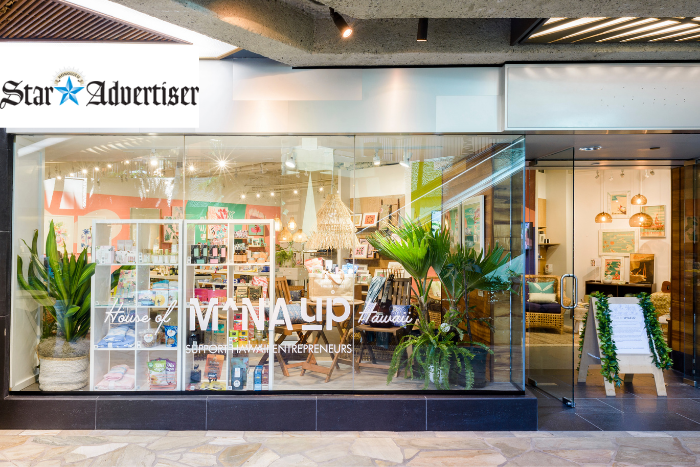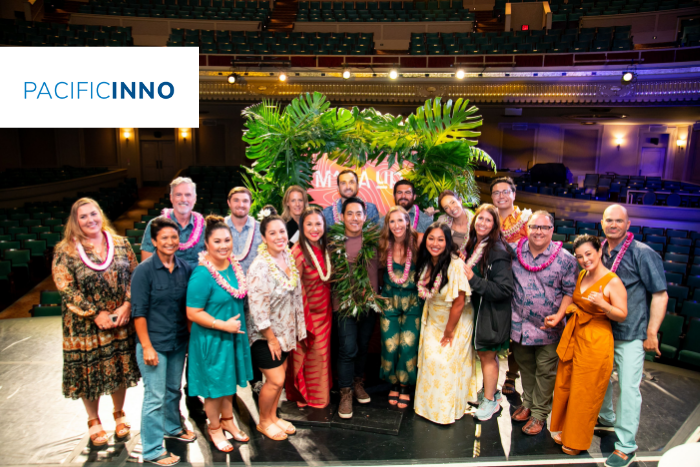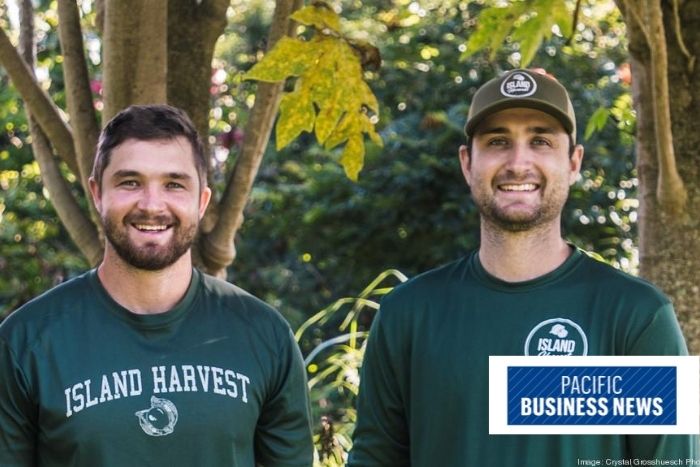Hawaii today is home to about a dozen accelerator and incubator programs, tangible proof Hawaii’s business climate and opportunities for entrepreneurship have strengthened over the past decade.
Blue Startups is hosting its 13th cohort of technology companies that bridge Asian and Western markets, mixing Hawaii teams with those from around the world.
The Elemental Excelerator this month launched Hawaii’s first climate technology fund: Earthshot Ventures, which closed a $60 million funding round to help entrepreneurs tackle climate change.
And Mana Up, dedicated to helping Hawaii products reach a global market, released its first economic impact report on Friday, charting its path toward its goal of creating Hawaii’s next hundred $10 million companies.
When it comes to accelerator cohort composition, Mana Up’s portfolio is unquestionably the most delicious, fostering local makers of pie, cookies, chocolate, tea, honey and jam.
Local clothing, art, jewelry, baby products and stationery companies are also part of the family.
Most of these small businesses were already successful — Mana Up seeks out companies that have crossed the $100,000 annual revenue threshold. But Mana Up is designed to help them level up, honing their marketing and adding e-commerce to reach customers around the world.
“There’s always been a global love for Hawaii, but we’ve always focused on meeting that demand by bringing people to the islands,” said Mana Up co-founder Meli James. “But we know people who’ve never been here will buy things that have the essence of Hawaii in them.”
“E-commerce empowers everyone to do more or all of their business online,” added co-founder Brittany Heyd. “In fact, more people have adopted tech during the pandemic, growing the overall market.”
Hawaii residents are now certain that these islands can’t sustain 30,000 visitors a day. But we should be able to sustainably produce 30,000 local snacks or household items, meanwhile supporting employees and suppliers down the line.
“Our objective is to embody, not exploit, Hawaii,” James said. “We’re proud that almost half of our portfolio are Native Hawaiian-owned enterprises.”
In fact, despite what we might see mainland tourists do in viral social media posts, most of the world wants to do the right thing.
“Authenticity, connection and culture are all global trends,” James explained. “People now want to know the story: Where does this come from? Who made it? What are the ingredients?”
Mana Up spends a lot of time helping its companies build out that narrative, be it Hawaiian or Hawaii’s unique mix of other cultures.
“If you want to support Hawaii and continue to have an authentic experience, work with companies that can naturally create that experience,” Heyd suggested.
“We don’t have to depend on people coming here to get the spirit of aloha if they can have it at home.”
But aren’t these products destined for boutique stores rather than big-box stores? Can this model — a regenerative economy that uses storytelling and connections to build brand loyalty for authentic products — ever supplant the tourism juggernaut?
Yes and yes, James and Heyd said.
“We help our companies host their own shops with Shopify, rather than just reselling through Amazon, and it turns out Shopify sellers fare much better,” Heyd said. “Our customers want that direct connection to these local brands, and spend more.”
“Having that direct connection isn’t even possible on Amazon or Facebook,” James added. “You don’t know who your customer is, so you can’t build that email list or social media community.”
As for offsetting the $15 billion that the visitor industry generates each year, Heyd points to chocolate and macadamia nut purveyor Hawaiian Host, founded nearly 100 years ago.
“If we could have 100 Hawaiian Hosts, that would be as big as tourism is today,” she said.
In the meantime, James pointed out that Mana Up is also developing the local market as well.
“Supporting local is very important, and half of our retail business are local buyers,” she said.
“We’re even helping corporate Hawaii navigate local suppliers, which we’re meanwhile helping to scale, so local industry is supporting local industry and we can keep that revenue and those jobs in Hawaii.”
To read the Mana Up economic impact report, or to shop from its growing network of local companies, visit ManaUpHawaii.com.



